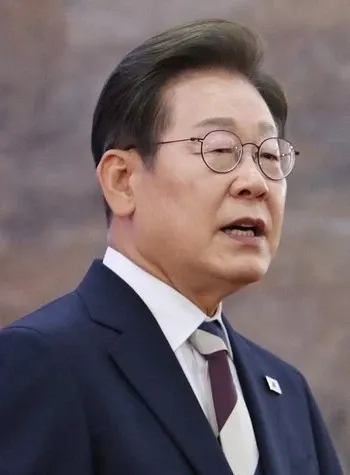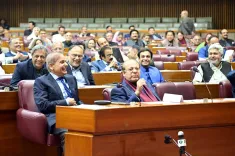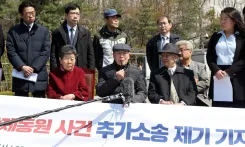How are South Korea and the US Strengthening Their Alliance?

Synopsis
In a pivotal move, new South Korean President Lee Jae-myung conversed with US President Trump, emphasizing their alliance amidst complex issues like trade and security. As they explore collaboration, both leaders aim for a future of strengthened ties, setting the stage for significant international diplomacy. Will this partnership overcome the challenges ahead?
Key Takeaways
- Lee Jae-myung and Donald Trump initiate dialogue to strengthen their alliance.
- Key issues involve trade, security, and relations with China.
- Lee emphasizes the importance of the South Korea-US relationship.
- Potential face-to-face meetings at upcoming international summits.
- Challenges ahead regarding North Korea diplomacy.
Washington, June 7 (NationPress) The newly inaugurated South Korean President Lee Jae-myung and US President Donald Trump initiated a significant dialogue via phone call, as their bilateral relationship confronts several challenging issues, including trade discussions, security burden-sharing, and strategic alignment on North Korea and China.
Lee's first conversation with Trump occurred on Friday, following his election on Wednesday, which was necessitated by the ouster of former President Yoon Suk Yeol after a brief martial law imposition in December, as reported by Yonhap news agency.
During their discussion, Trump extended his congratulations to Lee on his election victory, while Lee emphasized the critical nature of the South Korea-US alliance. According to Lee's office, the call was characterized as 'friendly', with both leaders recognizing the importance of close collaboration for the alliance's growth.
Indications of a budding relationship emerged as the leaders shared experiences regarding campaign threats and their mutual interest in golf, with Lee seeking common ground to further solidify their partnership.
This call also occurred in anticipation of a potential face-to-face meeting at the upcoming Group of Seven summit in Canada from June 15-17 or the NATO summit scheduled for June 24-25 in The Hague, Netherlands.
Lee's commitment to prioritizing the South Korea-US alliance as the 'foundation' of his 'pragmatic' foreign policy has sparked cautious optimism for future bilateral relations. However, his intention to manage ties with China 'stably' is being closely monitored by the Trump administration.
Following Lee's election, a White House official voiced concerns regarding 'Chinese interference' in global democracies, suggesting the Trump administration's wish for Lee's administration to maintain distance from Beijing.
Lee's inauguration coincided with escalating tensions between the two superpowers over trade, technology, and security.
Developing an effective policy towards China that doesn't jeopardize relations with the US is an intricate challenge for Lee, especially as the Trump administration seeks to align its Indo-Pacific allies against Chinese aggression.
Lee's immediate priority is to secure a comprehensive agreement with Washington regarding US tariffs, non-tariff barriers, and economic cooperation before July 8, when Trump's 90-day suspension of 'reciprocal' tariffs ends.
Both leaders committed to expediting negotiations for a deal that is 'mutually satisfactory', as stated by Lee's office, who emphasized the importance of achieving tangible results from these discussions.
In April, the Trump administration implemented a 25 percent reciprocal tariff on South Korea, labeling it among the 'worst offenders'. Although these tariffs took effect on April 9, Trump instituted a temporary halt to facilitate negotiations.
Under Lee's leadership, South Korea is tasked with mitigating the effects of not only reciprocal tariffs but also various sectoral tariffs, including a 50 percent levy on imported steel and aluminum.
Trump's push for increased defense spending among allies will also play a significant role in Lee's interactions with Washington.
Trump has asserted that South Korea has not adequately 'reimbursed' the US for its 'substantial' protection, suggesting a potential increase in Seoul's financial contribution to the stationing of US Forces Korea (USFK).
Another contentious issue is the potential drawdown of USFK troops, which has gained attention following a Wall Street Journal report indicating the Pentagon's consideration of relocating around 4,500 of the 28,500-strong USFK to Guam and other sites.
Although the Chief Pentagon spokesperson Sean Parnell dismissed this report as 'untrue', a senior US official highlighted the necessity to 'calibrate' US military posture on the Korean Peninsula to deter China, keeping the possibility of adjustments to USFK troop levels open.
Another critical focus for the alliance is strategizing over North Korea diplomacy, especially as Pyongyang seems disinterested in engaging with either Washington or Seoul amidst its growing ties with Moscow.
Trump has frequently expressed his willingness to reignite discussions with North Korean leader Kim Jong-un, while Lee has expressed hopes for renewed cross-border engagement, reduced tension, and trust-building with Pyongyang.








